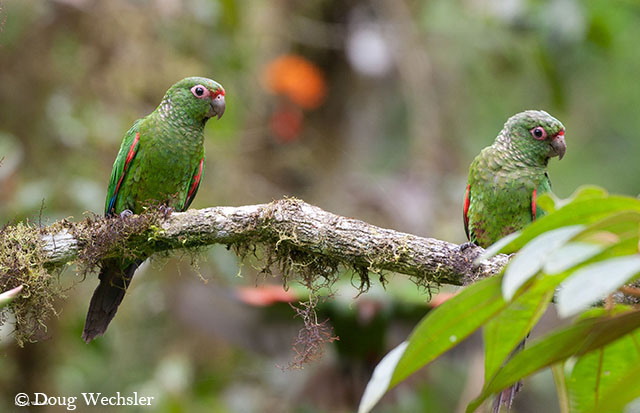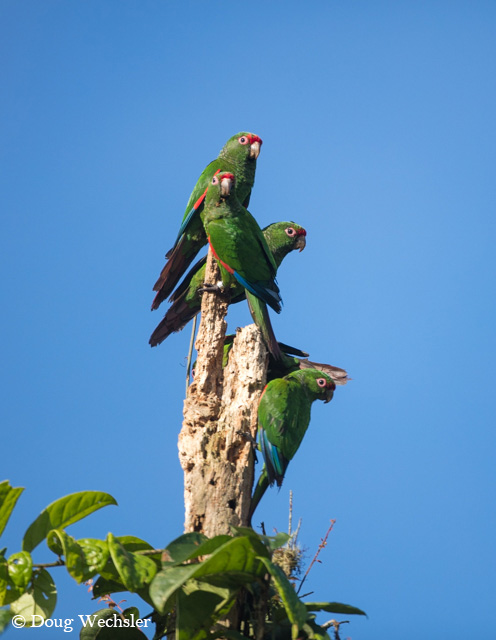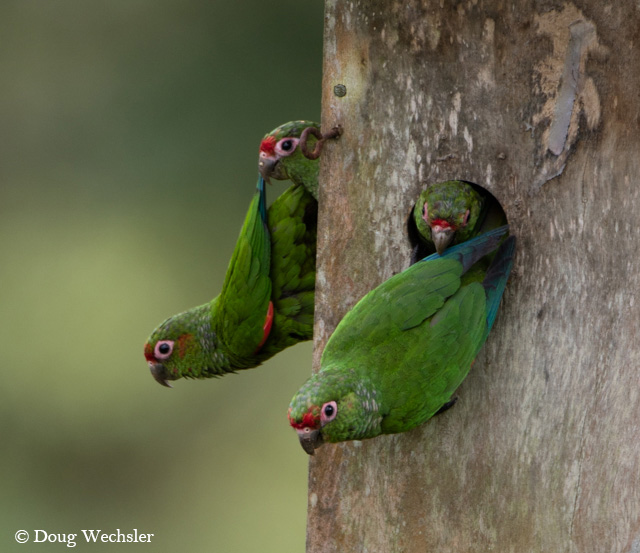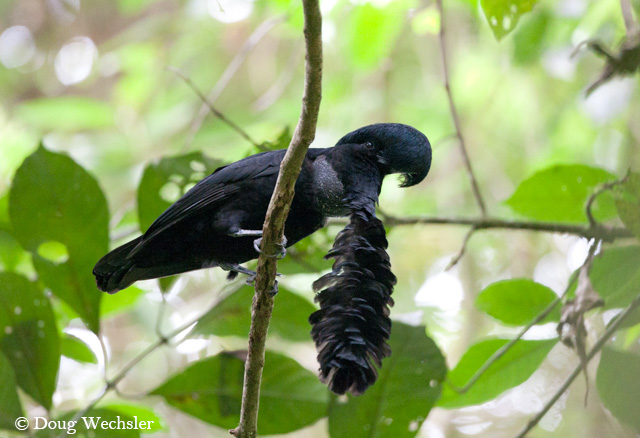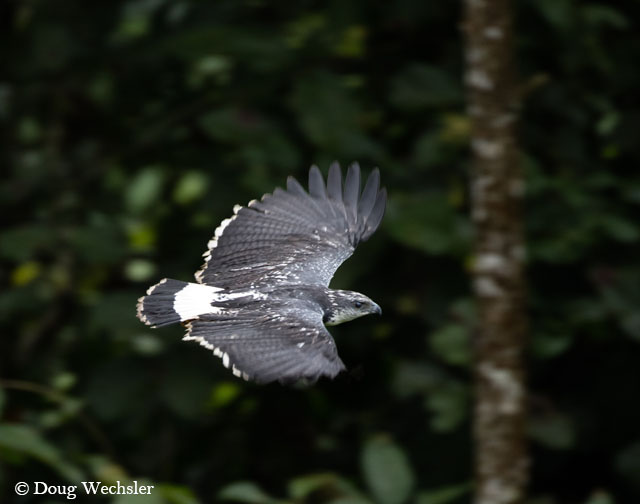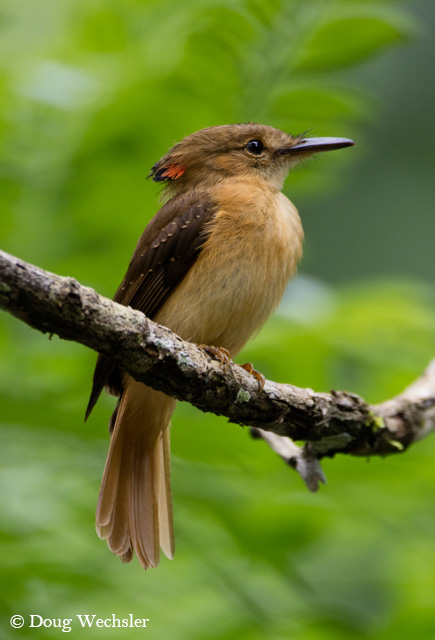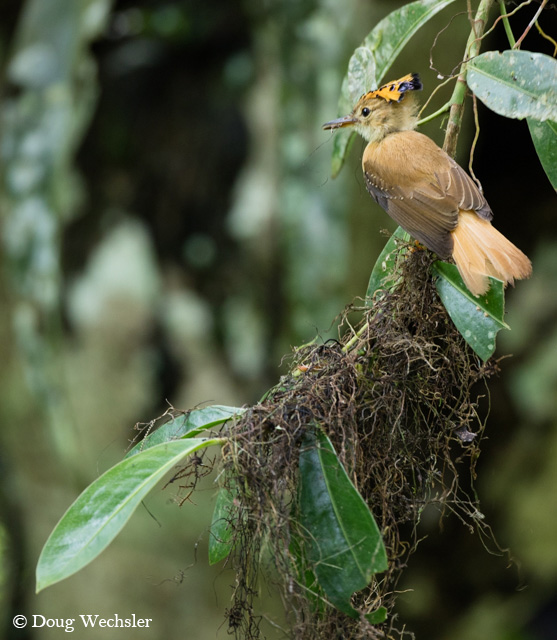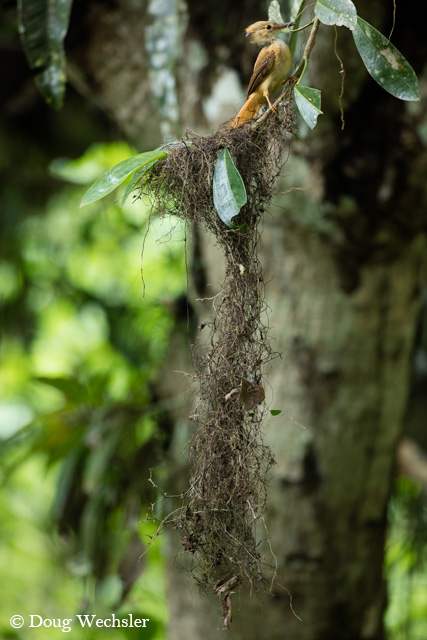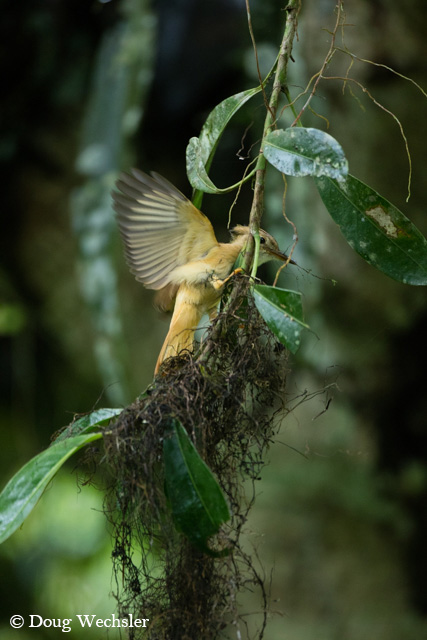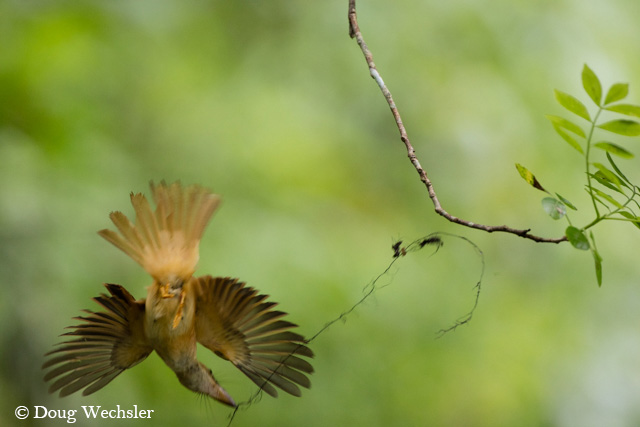Jocotoco Foundation’s Buenaventura Reserve hosts at least 315 species of birds. Here are a few key species:
El Oro Parakeet is the flagship species for Buenaventura reserve. The bird was first discovered there in the 1980’s. The Jocotoco Conservation Foundation took action to preserve the habitat of the species, creating the reserve in 1989.
Only several hundred of these Ecuadorian endemic parakeets survive. The Jocotoco Foundation works to protect them both on an off the reserve.
These parakeets have a fascinating communal breeding system. Only one pair breeds in a nest, but several other parakeets, mostly related to the pair, use the nest cavity/box and help feed the young. There may be as many as eight helpers. Consequently, one female can lay eight eggs.
Another prominent species at the reserve, in the eyes of birders, is the Long-wattled Umbrellabird. The male lengthens and fans out this incredible appendage during his courtship display. A lek (communal display ground) of these birds is located thirty minutes by foot from the reserve’s Umbrellabird Lodge.
The endangered Gray-backed Hawk has one of its remaining strongholds in and around Buenaventura Reserve.
The Pacific Royal Flycatcher has a bizarre crest that fans out to reveal red, blue, and black. Few ornithologists have observed how the bird uses this crest in the wild. When captured and held in the hand the bird opens its yellow-lined mouth and spreads the crest.
The female’s crest is orange, blue, and black.
The nest, here under construction, consists of fibers woven into a long, hanging mass. This nest is being built next to a road, but a more typical site would be over a stream.
The female builds the nest, while the male watches.
The female bringing a fiber to the nest. Nest building is a lengthy process. We had to leave the reserve before the nest was complete.

